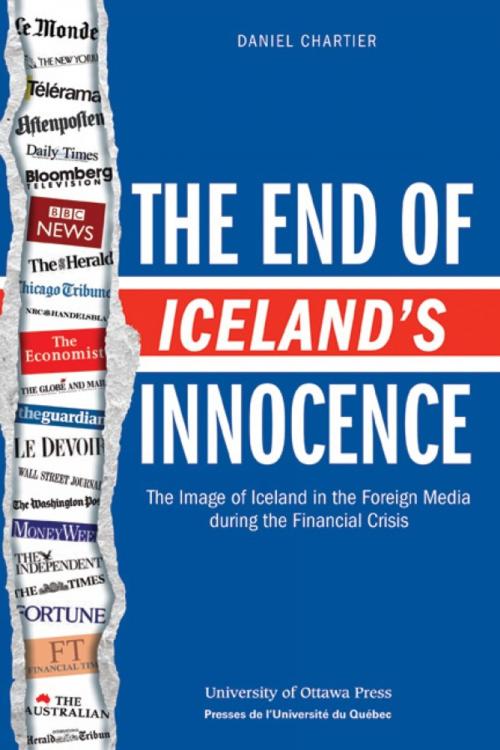The End of Iceland's Innocence
The Image of Iceland in the Foreign Media during the Financial Crisis
Nonfiction, Social & Cultural Studies, Political Science, Politics, Economic Conditions, Social Science, Business & Finance| Author: | Daniel Chartier | ISBN: | 9780776619439 |
| Publisher: | University of Ottawa Press | Publication: | March 14, 2011 |
| Imprint: | University of Ottawa Press | Language: | English |
| Author: | Daniel Chartier |
| ISBN: | 9780776619439 |
| Publisher: | University of Ottawa Press |
| Publication: | March 14, 2011 |
| Imprint: | University of Ottawa Press |
| Language: | English |
In the space of a few days, one of the world’s richest and most egalitarian nations, Iceland, toppled into financial chaos and sunk into an economic, ethical, moral and identity crisis. The vast empire built by Iceland’s young entrepreneurs, the “new Vikings”—who had propelled the country to the top of wealth, equality and happiness charts—collapsed under the combined effect of the failure of its banks and astronomical debt (more than ten times the country’s gross domestic product). Iceland became, in the midst of the global economic crisis, an icon of disaster that troubles all Western countries seeking to understand how the Scandinavian model could collapse so suddenly.
In this book, Daniel Chartier traces, through thousands of articles appearing in the foreign press, the fascinating reversal of Iceland’s image during the crisis. Citizens of a country now humiliated, Icelanders must deal with a number of significant issues including the quest for wealth, sovereignty, ethics, responsibility, gender and the limits of neoliberalism.
In the space of a few days, one of the world’s richest and most egalitarian nations, Iceland, toppled into financial chaos and sunk into an economic, ethical, moral and identity crisis. The vast empire built by Iceland’s young entrepreneurs, the “new Vikings”—who had propelled the country to the top of wealth, equality and happiness charts—collapsed under the combined effect of the failure of its banks and astronomical debt (more than ten times the country’s gross domestic product). Iceland became, in the midst of the global economic crisis, an icon of disaster that troubles all Western countries seeking to understand how the Scandinavian model could collapse so suddenly.
In this book, Daniel Chartier traces, through thousands of articles appearing in the foreign press, the fascinating reversal of Iceland’s image during the crisis. Citizens of a country now humiliated, Icelanders must deal with a number of significant issues including the quest for wealth, sovereignty, ethics, responsibility, gender and the limits of neoliberalism.















